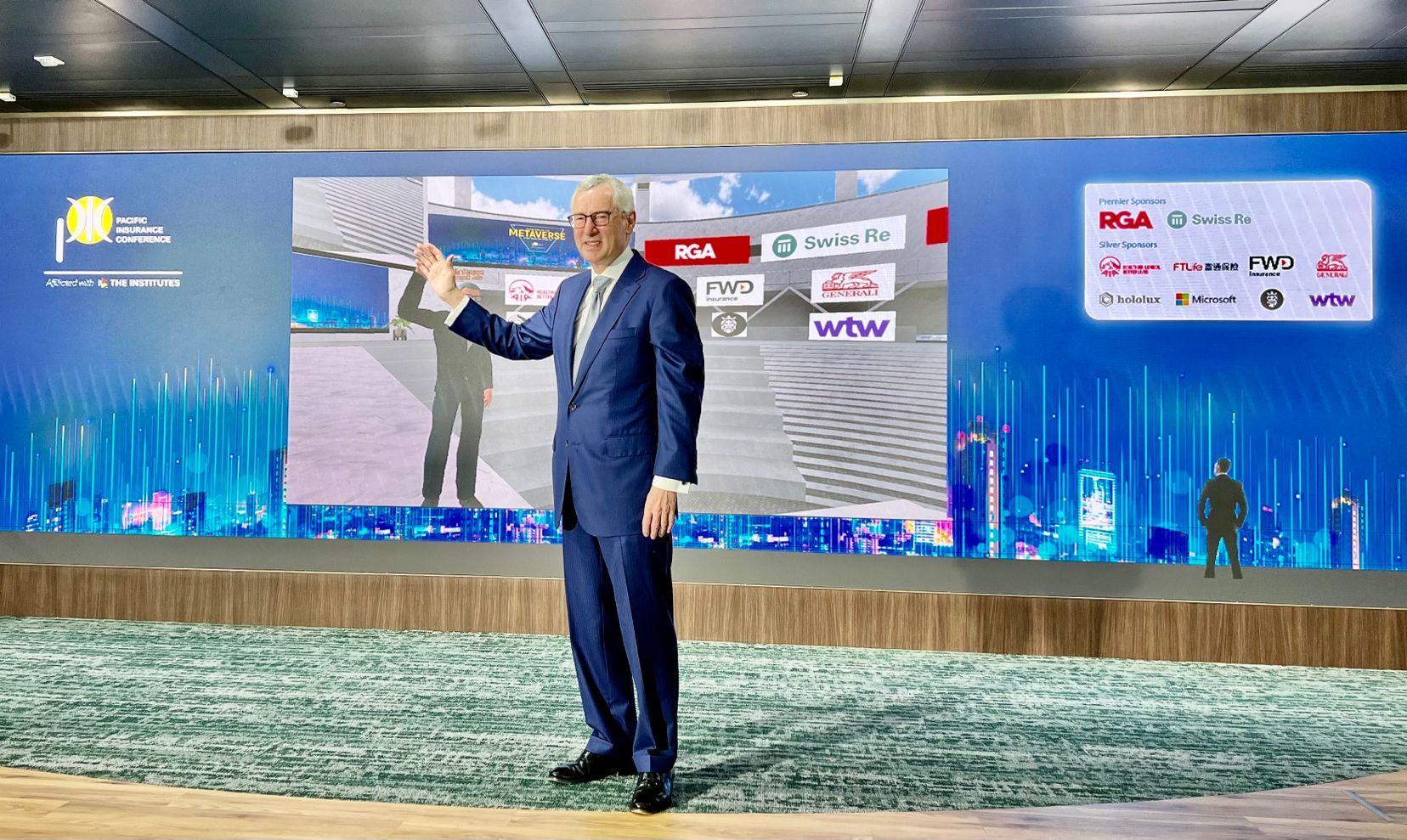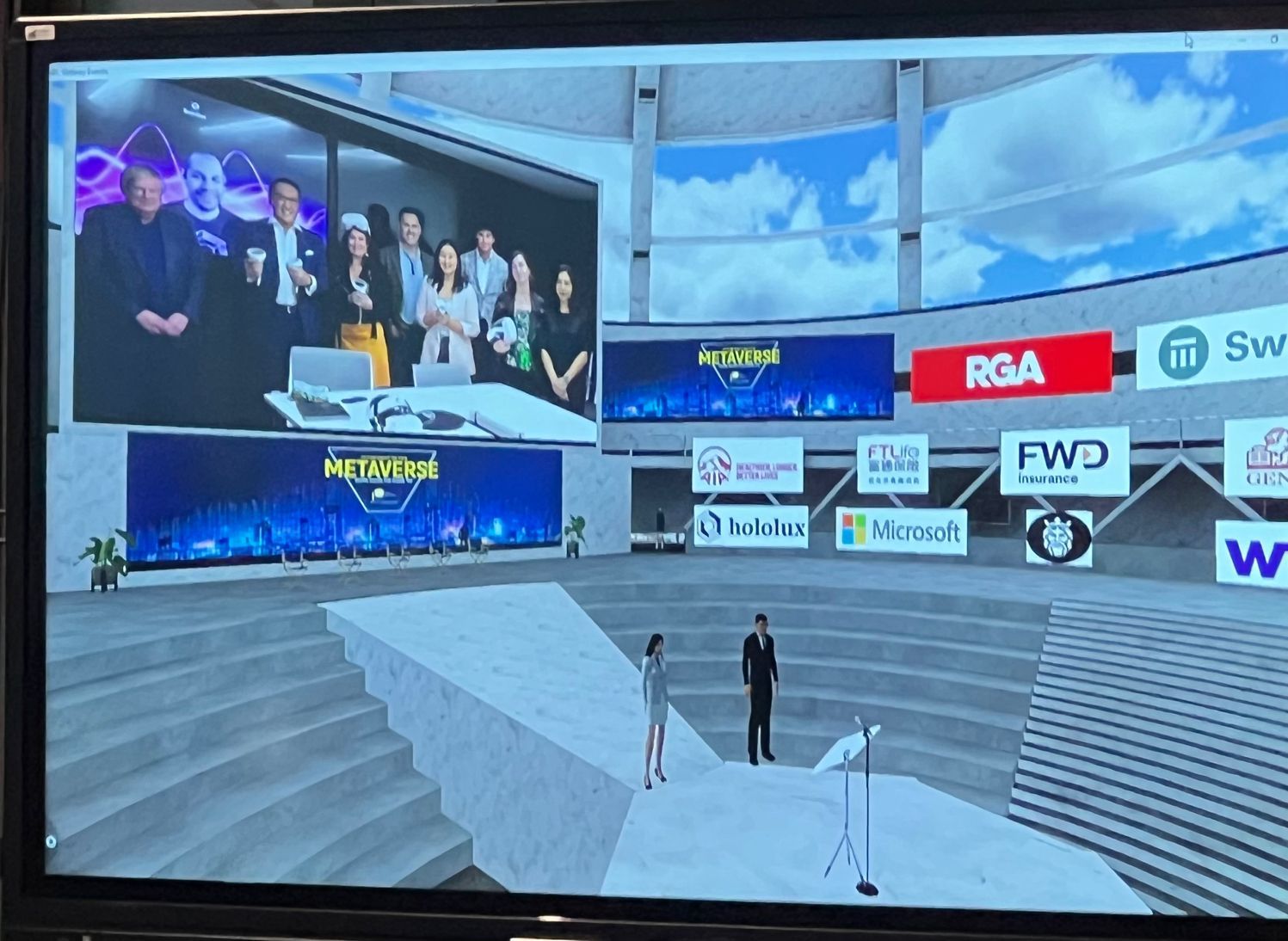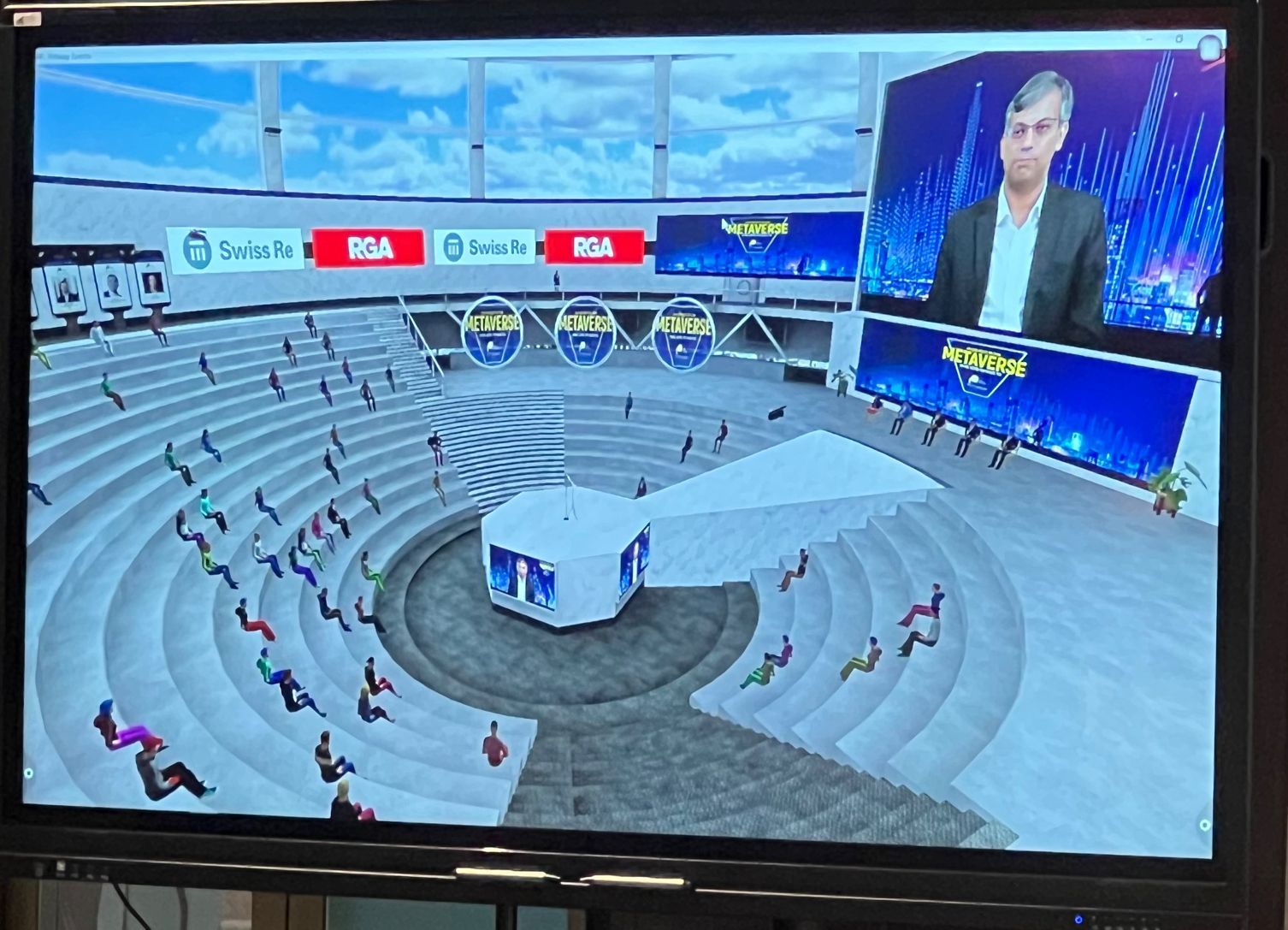Insurance in the Metaverse - Hype, Hope, Have To?
Held online, in person and also in the Metaverse itself, the Pacific Insurance Conference (PIC) 2022, sponsored by Generali Asia, deep dived prospects and opportunities of this new frontier of business - with a special focus on insurance
A digital universe that enriches and transcends our reality. That is the Metaverse, a series of immersive digital worlds that exist in the “cloud”, where people can connect, interact, and transact. A new frontier that promises to revolutionise the way we live our lives but also how insurers do business.
That was the focus of the Pacific Insurance Conference (PIC) 2022: sponsored by Generali Asia and chaired by John Spence (Regional Head, M&A and Strategy, Asia - Generali Asia Regional Office), the event was held on 1 December 2022 in Hong Kong and streamed both online and in the Metaverse itself, and it gathered leading technology platforms, strategic consultants and insurers making their first moves in the Metaverse.
The conference saw the participation of speakers from leading companies including, among others, Microsoft, BCG, McKinsey Digital, HSBC, and Swiss Re, and explored the opportunities offered by the Metaverse in various fields: from branding and advertising to investments and the internal needs of companies, such as on-boarding, collaboration, and training.
In the words of the participants: a “creative and innovative event, bringing a forward looking and fresh perspective to our industry”.
Key takeaways
- We are at the start of the Metaverse evolution - very much like the initial period of the Internet. That is why it is difficult to map out exactly what the future may hold; however, many signals are telling us that the Metaverse will be a disruptive technology.
- The level of engagement around games, media, entertainment, sports, fashion, brand experiences are sufficient to highlight the growing economic impact of the Metaverse.
- The highly immersive nature of experiences in the Metaverse leads users to value digital assets similarly to physical assets.
- Generational shift of Generation Z will move from games to commerce in the Metaverse.
- Opportunities for insurers include leveraging in the immersive technologies to engage with all stakeholders as well as developing new products and services linked to the Metaverse.
- In Asia we are seeing insurers making their first moves into the Metaverse with examples including: AIA, AXA, HSBC, FTLife; Generali; Prudential Financial.
- Recommended action steps: educate yourself on the Metaverse; experience it; build a portfolio approach and learn by doing.
What role for insurance?
The conference shed light on the many roles the insurance companies could play in the evolving environment of the Metaverse.
For example, they could start by establishing a presence for branding purposes and to engage with their clients for education and risk exposure awareness experiences. This will help increase the number of touch points with customers and may be exploited as an additional distribution channel in the future. Among other things, customers and agents could meet for consultations in the Metaverse.
The 3D immersive experiences have also the potential to impact how to engage with internal stakeholders. This includes both colleagues and distributors for recruitment, onboarding, training and collaboration.
It’s also easy to imagine how in the future Insurers could use the Metaverse to streamline certain core processes, such as risk assessment, virtual underwriting, claims management, and so on by leveraging on the concept of Digital Twins.
But the real potential of the Metaverse for insurers may lay in the development of new products and services, especially when combined with the power of Web3 technologies.
On the one hand, insurers can play a vital role in developing new solutions to protect the Metaverse itself and its operations: this will include both protecting digital assets and NFTs as well as safeguarding digital identities and ensuring business continuity and IP protection to the many companies running or operating the Metaverse.
On the other hand, the Metaverse may be used as a vehicle to deliver value added services in new innovative ways. This may be particularly exciting in the health space where remote consultations, mental health counselling and physiotherapy services, amongst others, may be provided.
Additionally, insurers may also be asked to play a role in addressing potential issues arising from the use of technology itself protecting the real world from some of the potential risks the Metaverse may pose (from cyber bullying to addiction problems).
Although the Metaverse is still in its early stages of development, it requires insurance companies to start exploring the space now, building a portfolio approach and learn by doing.
To get more detailed insights on this promising field, to discover what Generali is already doing or to get help explore and implement an initiative, write to innovation@generali.com.






